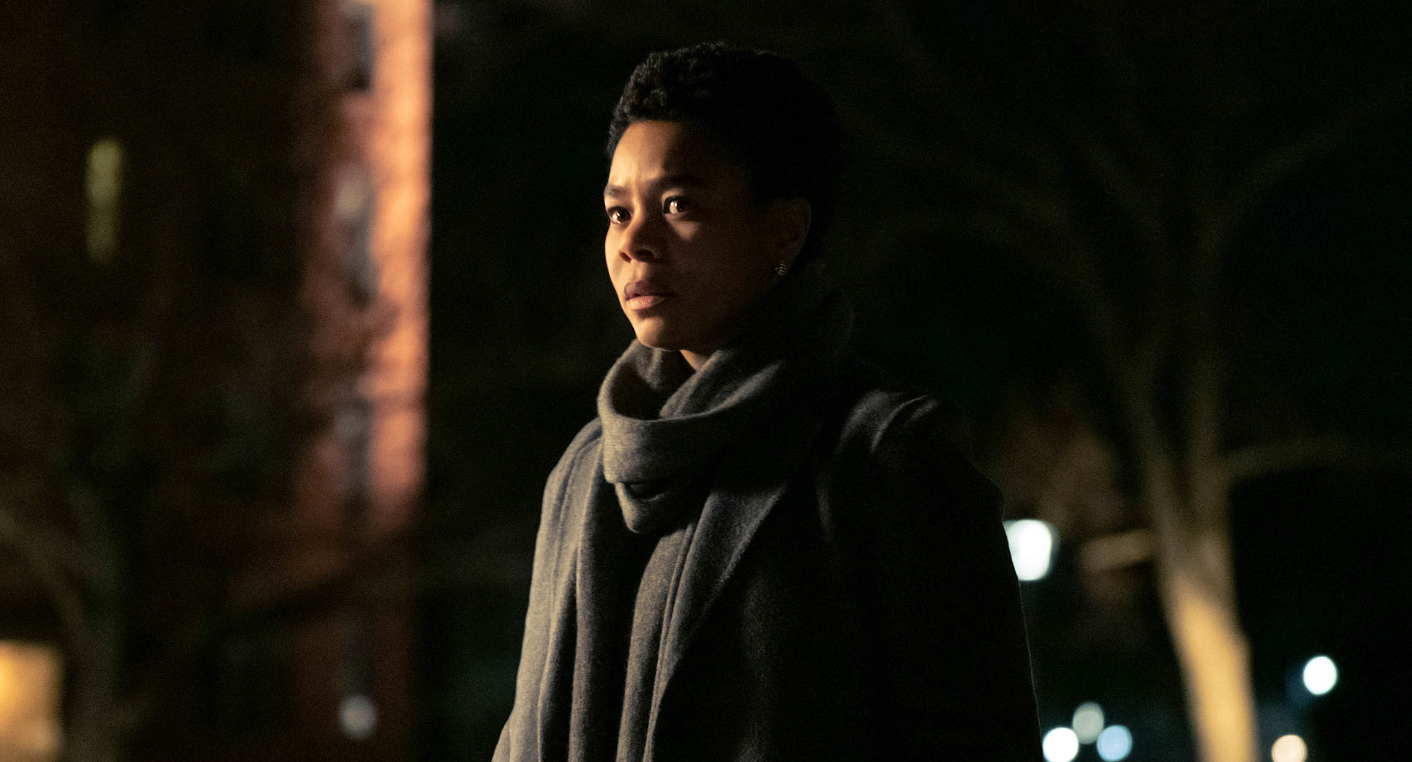
Film Review: Master
Film Reviews
Master
Director: Mariama Diallo
Amazon Studios
Streaming 01.21
A ghost is haunting Ackman, an elite college outside of Boston, Massachusetts. Margaret Millett, a woman hanged after she was accused of witchcraft in the 1600s, is said to haunt the grounds, claiming the life of one freshman every year. This is all news to Jasmine Moore (Zoe Renee), a freshman who also happens to be a young Black woman on an overwhelmingly white campus.
Within minutes, it becomes clear that there may in fact be something supernatural going on at Ackman. These scares, however, only set the backdrop for director Mariama Diallo’s true goal for Master, highlighting the much more tangible horrors of being a Black woman at an institution where their claims of diversity and inclusivity vastly outpace the reality.
During my time at my alma mater in Washington, DC, the school made national headlines for a slew of racist incidents and attacks on marginalized groups. Among them were bananas hanged by nooses at a number of locations around the campus, with a series of confederate symbols with cotton attached to them placed in academic buildings.
A great deal of imagery in the film is frightening not only for the images themselves but for the fact they are drawn from real incidents that are happening on American college campuses at this very moment. Amid the incidents of overt racism that are strewn throughout the movie, there is an undercurrent of microaggressions that give Master a sense of dread throughout. Robert Aiki Aubrey Lowe’s score lurks beneath every scene, signaling to the audience that there is never a safe or comfortable moment for students who are made to feel like interlopers on their own campus.
Unfortunately, the imagery and story don’t always seem to keep up with Lowe’s quality of work here. A laundry list of horror tropes pervade the running time; doors open and shut on their own, Jasmine sees things that aren’t really there and all manner of things go bump in the night. There is some deft camerawork on the part of Charlotte Hornsby, but she is hobbled by some of what she is being asked to shoot. Ye olde “there’s-something-behind-you-in-the-mirror” shot even makes an appearance.
The overt horror elements in Master step on what essentially amounts to a well-made message movie about racism on college campuses. The presence of the supernatural threat essentially seems to be an attempt by Diallo to tie the horror of experiencing racism to something a person who looks like me might fear. That being said, the execution of these supernatural elements undermines that message.
If you’re willing to do the mental gymnastics to ignore the stale, ghost story arch, there is a respectable movie in here. Renee does an excellent job of portraying the subtle dread and lack of belonging that students of color feel attending these schools. Regina Hall and Amber Gray both give standout performances as the only two Black women on Ackerman’s faculty. Hall plays a tenured professor, as well as the “housemaster” of Jasmine’s residence hall, and Gray plays more of a small antagonist in the form of a professor who goes particularly hard on Jasmine. The latter two share a strong bond and are the subjects of a later plotline that perhaps would have been more impactful if the ghost stuff was relegated to a different movie altogether.
Overall, Master is a compelling watch, if a bit sleepy. The concern is that the audience will come to expect the flavor of either a horror movie or a message movie, and as a result neither camp will leave entirely satisfied. If it leaned a little more into the frightening reality we live in rather than the ghost story, perhaps Master would be stronger. –Brandon Ermer
Read more film reviews from Brandon Ermer:
Film Review: Barbarian
Film Review: The Spine of Night